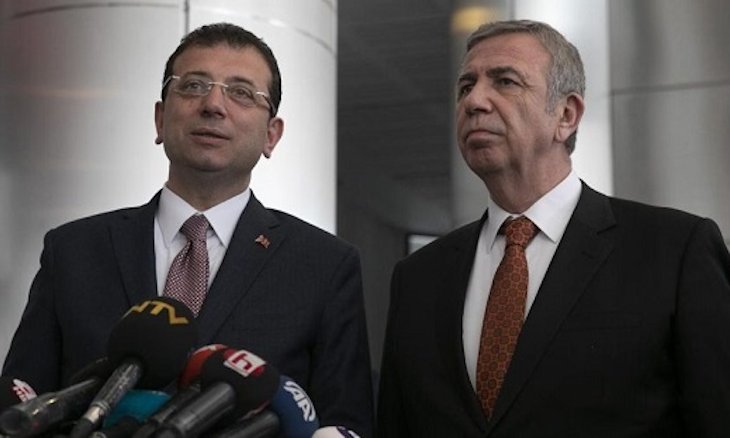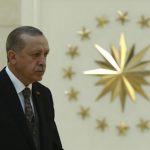… The ongoing coronavirus pandemic has forcefully reminded Turks of their deep underlying divisions. Those divisions are making it impossible for them to come together to fight a potential catastrophe that is national, not ideological.
In an address to the nation on March 30, President Recep Tayyip Erdoğan launched a national donation campaign asking wealthier Turks, individual or corporate, to help poorer Turks. The campaign only managed to collect an embarrassing $245 million from a country of 83 million people, and most of that came from government-controlled companies.
Parallel to Erdoğan’s campaign, mayor of Istanbul Ekrem Imamoğlu and mayor of Ankara Mansur Yavaş tried to launch local campaigns to collect donations to help the poorest in their cities, which are Turkey’s largest. But there was a problem. Imamoğlu and Yavaş are opposition mayors who brought Islamist rule in Istanbul and Ankara to an end last year after 25 consecutive years.
| Imamoğlu and Yavaş ended a quarter century of Islamist rule in Istanbul and Ankara last year. |
The national government declared that city councils, according to law, must obtain permission from the Interior Ministry to launch money-raising initiatives. Imamoğlu and Yavaş argued that other, government-controlled municipalities were raising donations to help workers and small business owners who had lost their incomes due to the coronavirus. Yes, the government said, but they had obtained permission whereas Istanbul and Ankara had not.
On March 31, Vakıfbank, a state-owned lender, froze the Istanbul municipality’s account, where coronavirus donations had reached $130 million. “Pathetic” was all Imamoglu could say. But there was more to come. The Interior Ministry launched criminal investigations against both mayors on charges of illegal fundraising.
“This ban [on municipal donation campaigns] was imposed on orders from Erdoğan,” said Kemal Kilicdaroglu, leader of the main opposition Republican People’s Party (CHP). “The government has still not recovered from the shock of losing the big cities to the opposition last year,” Utku Çakırözer, a CHP member of parliament, told Al-Monitor. “At a time when the entire world is looking for ways to protect their citizens against this calamity, in Turkey alone there is a government that is setting such concerns aside to focus on how it can best prevent opposition municipalities from performing their duties.”
In the following days the Interior Ministry banned the CHP-controlled Mersin municipality’s free bread distribution campaign even as the Central Anatolian province of Kayseri, which is controlled by the government, distributed thousands of free loaves. In Adana, another CHP-controlled city, the municipality’s newly opened field hospital for coronavirus patients was closed down by the government because “it did not have the necessary licenses to operate.” In Istanbul’s Kadıkoy district, another CHP stronghold, a public concert of “national solidarity songs” was banned by the government. On Apr. 10, the Interior Ministry blocked the bank accounts of soup kitchens run by the CHP-controlled municipality of Eskisehir.
After the coronavirus crisis passes, Turks will continue to proudly chant songs and slogans of national unity. They will keep adoring their flag and national anthem. They will fill the stadiums to root for their national teams. They will still believe the only friend to a Turk is another Turk. And half of them will keep privately hating the other half.
By: Burak Pekdil
Burak Bekdil is an Ankara-based political analyst and a fellow at the Middle East Forum.
Source: Middle East Forum



